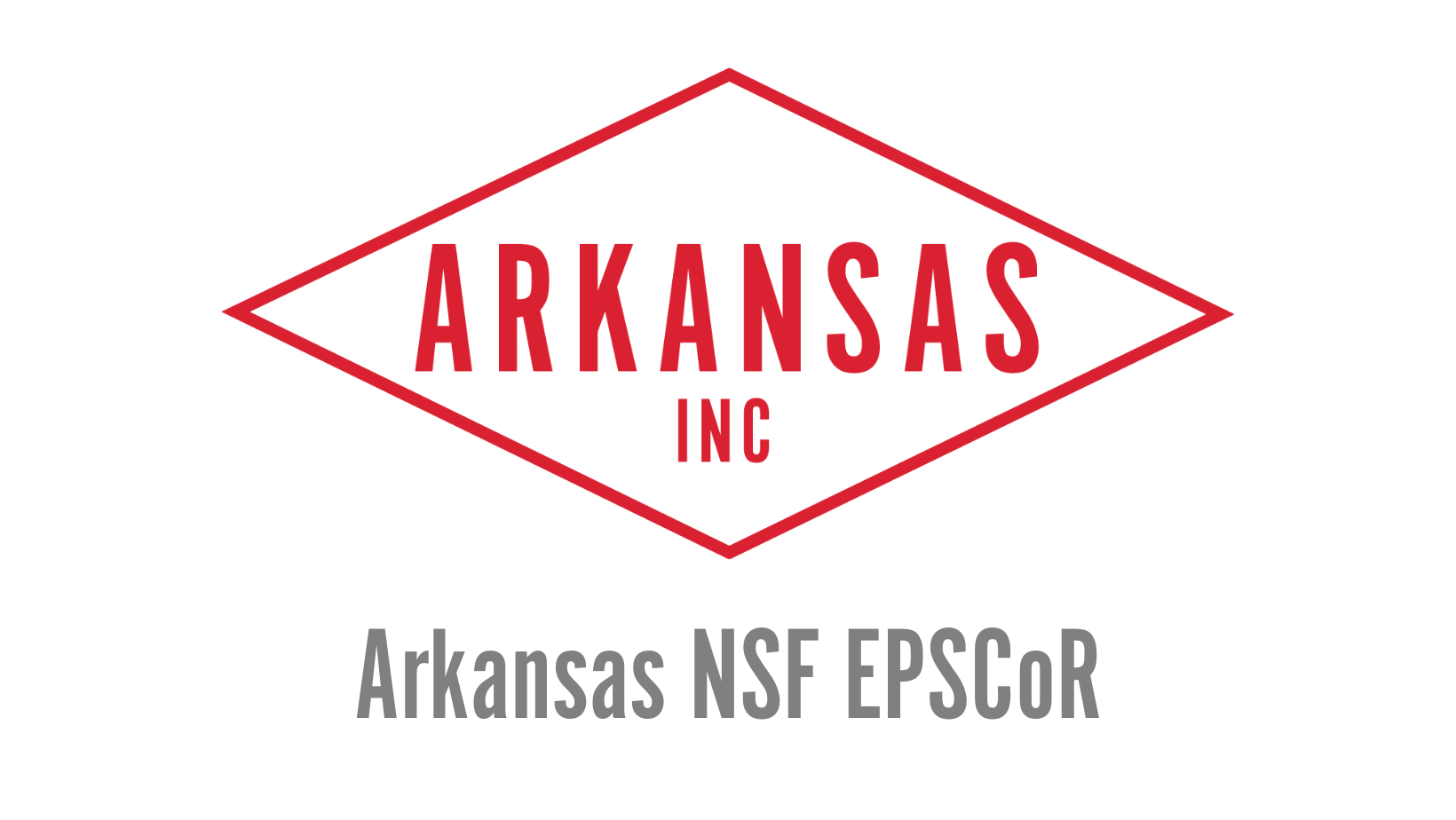Center for Advanced Surface Engineering (Track 1)
Arkansas NSF EPSCoR Research Infrastructure Improvement Track 1
The Arkansas NSF EPSCoR program is a multi-institutional, interdisciplinary, statewide grant program leveraging $24 million over 5 years to expand research, workforce development, and science, technology, engineering, and mathematics (STEM) educational outreach in Arkansas. The program is administered by the Arkansas Economic Development Commission (AEDC) Division of Science and Technology to maximize resources available to support the advancement of STEM in Arkansas.
The current Track 1 project, the Center for Advanced Surface Engineering (CASE), is designed to strengthen research in Arkansas with for national significance and major economic development.
CASE research will focus on discovery and application of novel, multifunctional, and tunable surfaces with engineered mechanical, optical, electrical, magnetic, biological, and filtering properties that have potential to impact Arkansas’ manufacturing, aerospace & defense, agriculture, forestry, food packaging, oil and gas, and healthcare industries. By facilitating connections between academia and industry, CASE aims to accelerate Arkansas’ transition to a knowledge-based economy.
Center Leadership and Supporting Faculty Page
Participating institutions include Arkansas State University (ASU), The University of Arkansas at Fayetteville (UAF), The University of Arkansas at Little Rock (UALR), The University of Arkansas at Pine Bluff (UAPB), The University of Arkansas at Monticello (UAM), The University of Arkansas for Medical Sciences (UAMS), Ouachita Baptist University (OBU), Southern Arkansas University (SAU), Philander Smith College (PSC), The University of Central Arkansas (UCA), and The UA Division of Agriculture.
Support for the Arkansas EPSCoR Program is provided by the National Science Foundation's Research Infrastructure Improvement Award OIA-1457888.
CASE is organized around the hypothesis that the fabrication of nanostructured surfaces can accelerate the discovery of new phenomena and the design of surfaces with novel functionality. By exploiting the high surface-to-volume ratio of nanostructures, the interface between nanoscale materials, the tunable properties of nanoscale materials controlled by external stimuli, and the capability for multiple functions, we will uncover the underlying science to design and engineer novel surfaces with specific properties.
To achieve our goal, CASE’s scientific objectives are to open new and exciting directions in the discovery and engineering of multifunctional and tunable surfaces, acquire and use state-of-the-art instruments to fabricate novel surfaces and measure their properties, create new modeling, simulation, and computational tools to enable model-based surface design, and provide novel material surfaces and a database of their properties, which can potentially be transferred to Arkansas industry to accelerate their product innovations. The CASE team will bring together the capabilities to computationally engineer material surfaces and predict surface properties and experimentally produce prototype material surfaces, measure their properties and test their performance.
We will develop and understand nanostructured surfaces that are durable, low friction, and self-sharpening; are tunable in color and refractive index; have tunable permeability to gas and microorganisms; provide tunable, multifunctional, renewable filtration efficacy and capacity, and have tuning electromagnetic properties for enhancing differentiation and function.
CASE’s strategy is to leverage statewide research and its connection with industry to train students in surface science, fabrication, characterization, and applications. The Center’s graduate curriculum will blend existing and newly developed courses specifically aligned with surface science and engineering. The curriculum will be integrated with industry internships, seminars, and other academia-industry interactions providing a unique interdisciplinary educational program for students.
Plans include establishing start-up companies to commercialize technologies developed by CASE, creating new products and new jobs that will bolster the knowledge-based economy in Arkansas while creating a workforce with specialized skill sets necessary to sustain industries that can utilize CASE’s research. Our research community represents all aspects of diversity (geographical, institutional, and individual) and the diversity plan targets both a diverse workforce and diverse skill sets.
Finally, CASE’s statewide cyberinfrastructure approach creates a unified platform supporting research and expanding the potential for education that will benefit all Arkansas public higher education institutions.

